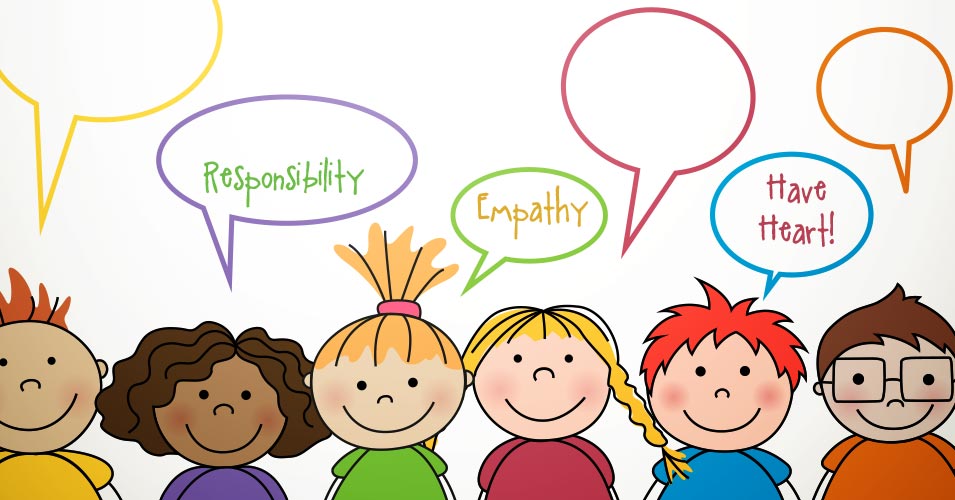Every day our children are confronted with moral dilemmas that require their hearts and minds work together to solve a problem. Bullying is one such challenge.
Bullying hurts all children involved in the incidents: the bully, the bullied and the bystander. Despite recent legislation and numerous school programs, there has been minimal improvement. Perhaps this is because policies only address the symptoms of bullying, not the underlying causes.
Developing social-emotional skills within all children can improve a school’s climate and decrease the frequency of bullying behavior. Therefore, it is essential that children possess skills such as compassion and empathy.
How can we support this process? There is a variety of ways parents can foster a child’s moral compass to help him confront and solve everyday problems.
Be aware you are a role model. Children learn through observation. Therefore, adults need to consistently model the types of behaviors they want kids to develop. We want our kids to be intrinsically motivated, simply to do the right thing because it is the right thing to do. Making positive choices feels good and contributes to one’s self-confidence. Provide feedback and let them know what it says about their character, such as they are brave, trustworthy or thoughtful.
Take responsibility for your actions. We all make mistakes. When we do, we must own it and attempt to make things right. Try to model appropriate expression of feelings when things go wrong. If you do react poorly, and we all do sometimes, let your kids know there may have been a better way to handle the situation. The ability to stay calm and in control in difficult situations is extremely important. Be sure to demonstrate kindness and respect in your own interactions and your children will be much more likely to follow suit.
Encourage empathy. The ability to identify and understand the feelings, needs and viewpoints of those around us is something we are born with. This is also true for the desire to help others. One’s experiences can shape how well these skills are ultimately developed over time. Therefore, it is something that needs to be nurtured.
There are many ways we can work to promote empathy, ranging from our everyday interactions with children to more planned activities. We can talk about empathy and kindness, or other important values, discuss what these values mean and set clear expectations—suggesting to our children, for example, that they include kids at school who typically are isolated. We can also give children opportunities to practice empathy and engage in the habit of caring for others. Volunteering as a family throughout the year helps provide a broader context into the range of the human experience. Involve children in making plans or solving conflicts, and encourage them to reflect on the perspectives of others. Asking children to reflect on who they have empathy for and who they may not typically be aware of can be a great way to encourage them to think about others, especially those who are different from themselves.
Talk about it. Establish routines that promote opportunities for conversation. Eat meals together as often as possible. Read and talk together as part of the bedtime routine. There are many books that include themes such as bullying, responsibility, empathy and problem solving. We can ask questions about the stories (for instance, what were the characters feeling and what might they do differently?) and help our kids connect them to real-life situations. The important thing is for your children to feel comfortable and confident enough to be able to come to you with concerns or questions. At times, our kids just need us to listen and validate whatever feelings they may be experiencing. We won’t always have a solution to offer, and that is all right; sometimes just really being present with them is enough.
A school must have heart. Continue to talk to your children, set high ethical expectations for them, and model those behaviors yourself. In addition, find out what your child’s school has planned for improving the building climate and social norms. Most schools have programs to address social-emotional skill development. However, such programs might not be getting enough attention or being meaningfully implemented. Ask questions. Find ways that you can get involved.





